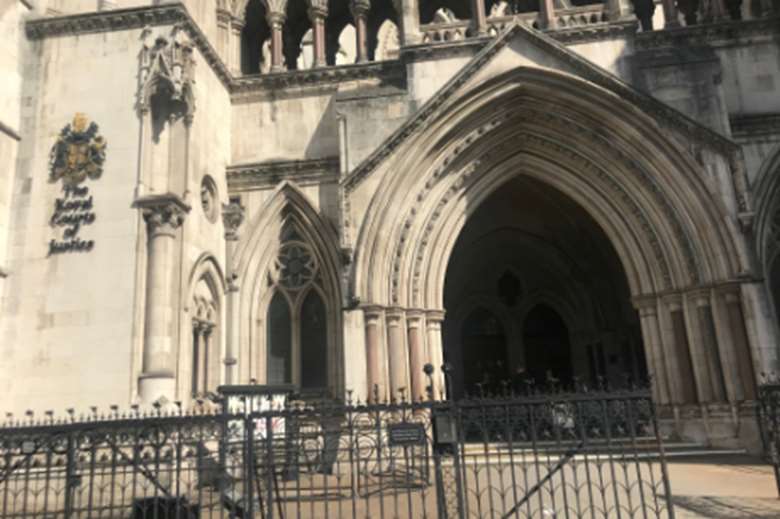Government to face high court legal challenge against Reception baseline
Tuesday, July 23, 2019
Families challenging the Department for Education's introduction of the Reception baseline assessment will outline their concerns to the High Court tomorrow.

On Wednesday, a High Court judge will decide whether to grant permission for a hearing to examine in more detail whether the Government’s decisions about proceeding with the Reception baseline assessment and its pilot scheme have been lawful.
- Baseline trial data censored in FOI release
- Hundreds of children and parents march againt Reception baseline
The controversial assessment will take place in the first few weeks after a child starts Reception and will replace the current Key Stage 1 tests at the end of year 2. The check is being rolled out nationally in 2020 and a pilot is taking place this September.
If at the hearing, the High Court finds the Government is acting unlawfully, it is likely the pilot scheme will have to be put on hold while the Department for Education rethinks its approach to the assessment process and its impact on children being assessed.
The families behind the challenge are concerned at the ‘potential harm’ the assessment process could cause to their children.
They are also worried that the feedback the DfE will provide to schools about how their children perform in the assessment could be used to group them by ability in maths and literacy. They are particularly concerned because there is evidence to suggest children remain in their ability groups throughout their education, and that grouping or streaming can have a negative impact on children’s confidence and later education.
The families are calling on the education secretary to fulfil his duty to promote the welfare of their children, and all other children taking the assessment, and not to proceed with the assessment pilot until their concerns about the risks of harm have been properly considered and addressed.
It has also been reported that parents will have no legal right to know whether their child’s school is taking part in the assessment pilot. The DfE has confirmed it is up to the discretion of individual schools whether to inform them.
Nursery World has yet to recieve confirmation of this from the DfE.
Comments
Irwin Mitchell, who is representing the families, has asked the Government to provide evidence that it has considered these risks, monitored the impact of the assessment tasks on children in the testing phase and taken steps to reduce any negative impacts in time for the pilot scheme just months away.
Solicitor Lisa Richardson said, ‘The Education Secretary is under a legal duty to promote the welfare of children taking part in the Reception Baseline Assessment and its upcoming pilot scheme. Our clients’ parentsare worried about the immediate distress experienced by some children in the assessment process itself, and the longer term impact on their education.
‘We understand the tasks in the assessment become progressively harder, and where children are finding them too difficult the electronic assessment tool will move on to a different type of task. Our clients’ families are worried that they have no way of knowing how difficult the children have to find the tasks before they are diverted away from them.
‘They also do not know how the children will react to a formal 1:1 assessment within the first 6 weeks of starting school when they are only just getting to know their teacher, classmates and the school environment. They are concerned that being asked to complete tasks that are unfamiliar or too difficult could cause children to feel anxious and stressed and to associate that feeling with being at school and learning. Studies have even suggested that some children just starting school can associate failing in a task with how good they are as a person.’
Nancy Stewart of campaign group More Than A Score and TACTYC, the association for professional development in the early years, said, 'We think parents should know that the first few weeks of their child's time in reception class could be disrupted by these unnecessary tests. We would urge parents to ask their child's teacher and headteacher if they are going to take place. We would also remind schools that, even if they have signed up for the pilot, they do not have to participate.
'Parents have a right to know if the Government is testing their child. In this experimental process (this year's pilot), the results will be held centrally and compared to later data collected at the age of seven. Our children should not be used as guinea pigs in this way, without their parents' knowledge and consent.'
A Department for Education spokesperson said, 'To suggest that the Reception baseline assessment could cause harm to children is nothing more than scaremongering. This sort of alarmist language describing an assessment that children should not even realise is taking place, is extremely unhelpful.
'The Reception baseline assessment is a quick check of a child's early language and ability to count when they start school to help inform teachers - nine in ten schools already carry out on-entry checks. The RBA has gone through a robust test development process, as do all of our assessments, and will not be used to judge or label individual pupils.'






